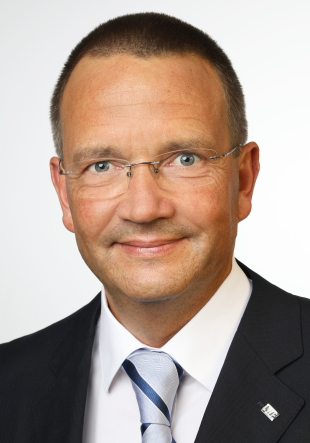Fundamental research receives around 29 million euros of funding
The German Research Foundation (DFG) has extended two Collaborative Research Centres (CRC) at Paderborn University: the two major projects ‘Accounting for transparency’ and ‘Method development for mechanical joinability in versatile process chains’ have each been funded for a further four years with around 29 million euros, as the DFG announced on Friday, May 19. University President Professor Birgitt Riegraf is delighted with this success: ‘The extension of these two Collaborative Research Centres is fantastic proof of our university’s strength in research and the exceptional work being conducted by our researchers.’
18 million euros for research into corporate transparency
When it was approved in 2019, ‘Accounting for transparency’ was the first CRC to have a business focus. As a ‘Transregio’, its application was submitted jointly by Paderborn University, the Humboldt-Universität zu Berlin and the University of Mannheim. Paderborn’s Faculty of Business Administration and Economics serves as the public face, with Professor Caren Sureth-Sloane as spokesperson and overall coordinator. She is Professor of Business Administration, esp. Business Taxation and works within the Taxation, Accounting and Finance department. Alongside the applicant institutions, the project also involves researchers from the Ludwig Maximilian University of Munich, the Goethe University of Frankfurt, Frankfurt School of Finance and Management, WHU – Otto Beisheim School of Management and the University of Cologne. Within this joint project, a team of around 100 researchers is examining how accounting and taxation affect companies’ transparency, and how regulations and corporate strategy impact the economy and society. The CRC should ultimately help sensible rules for corporate strategy to be developed in order to create a transparent taxation system.
Further information can be found soon in the news about the TRR Accounting for transparency.
11 million euros for key joining technology
Researchers from Paderborn University, TU Dresden and FAU Erlangen-Nürnberg have been working together within the interdisciplinary CRC ‘Method development for mechanical joinability in versatile process chains’ in the field of product manufacturing since 2019. Their goal is to develop flexible joining technologies that break down previously rigid procedures and enable an adaptable process chain. This should allow modern production processes to be adapted to keep up with increasing product diversity thanks to different materials and construction methods. The CRC/Transregio received around 11 million euros for its second four-year funding phase. Professor Gerson Meschut is the CRC spokesperson and head of the Laboratory for Material and Joining Technology (LWF) at Paderborn University.
Further information can be found in the news about the TRR Method development for mechanical joinability in versatile process chains.




